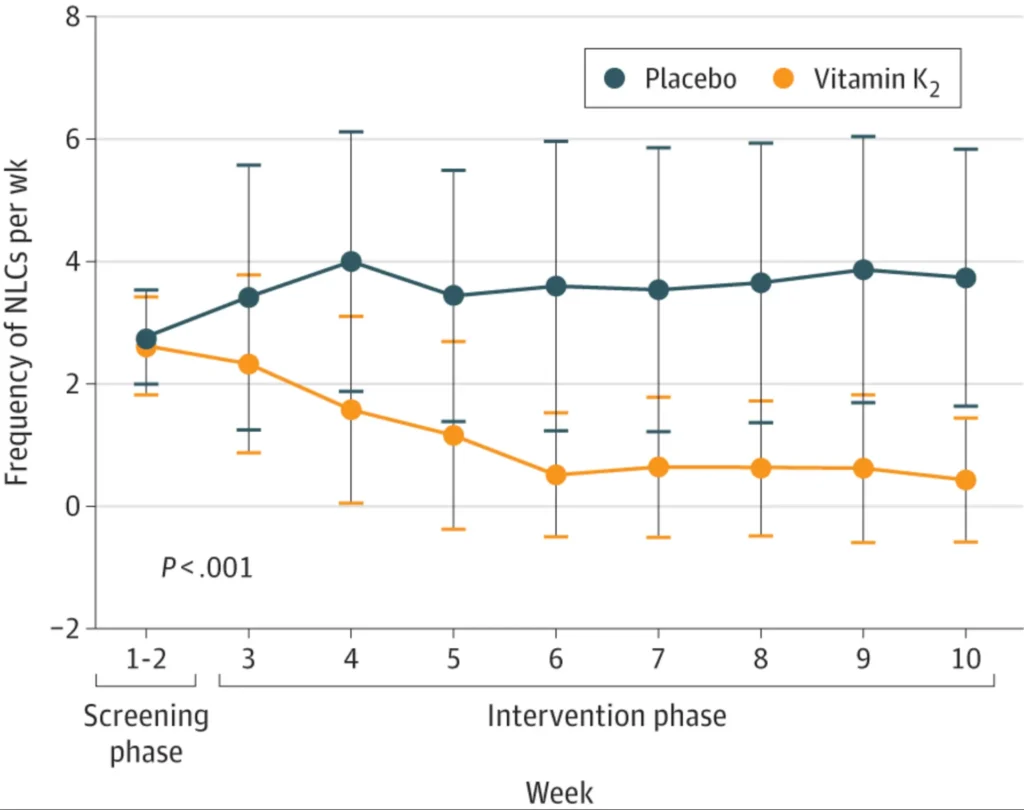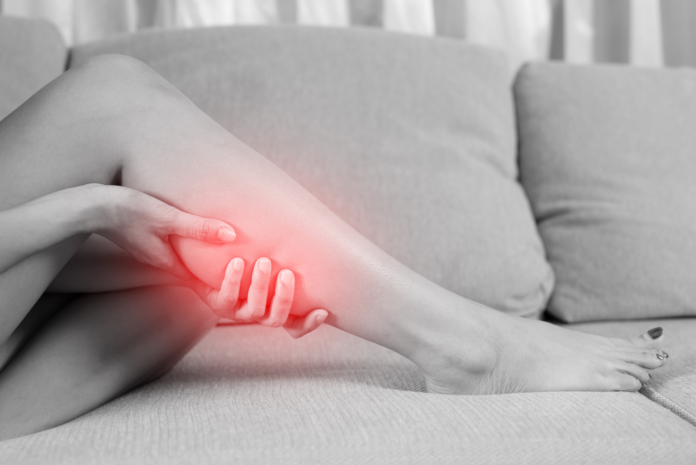The Nighttime Nightmare of Night Cramps
Do you wake up in the middle of the night with a sudden and painful cramp in your thigh, calf, or foot? You’re not alone. Night cramps, also known as nocturnal leg cramps (NLCs), are a common problem that affects millions of people – and it gets worse with age. In fact, 40% of people over 50 experience these painful episodes.
Why Don’t More People Talk About It?
Unfortunately, despite how distressing night cramps can be, many people don’t report them to their doctors. It might be because they’re not sure what’s causing their cramps or they’re just not sure where to start. But that’s about to change.
A Breakthrough in the Treatment of Night Cramps
Researchers from the Third People’s Hospital in China and several medical colleges have made a groundbreaking discovery. In a clinical trial involving 199 people, they found that vitamin K2 is a safe and effective way to prevent night cramps. Not only did it reduce the number of episodes, but it also reduced the pain associated with them and how long the cramping lasted. This is great news for anyone who wants to say goodbye to those painful nighttime wake-ups.
Exciting Developments in Night Cramp Treatment
Researchers have made some interesting connections between their earlier studies and how vitamin K2 might help with muscle cramps related to hemodialysis. They highlighted that this is the first study specifically focusing on vitamin K2 as a treatment for nocturnal leg cramps (NLCs), a problem many older adults face.
Traditionally, people have relied on lifestyle changes, like staying active and drinking enough water, to help reduce the frequency of NLCs. Unfortunately, these methods aren’t always effective, especially as we age. While magnesium supplements have been somewhat helpful for pregnant women, they haven’t proven to be beneficial for everyone dealing with NLCs.
The current understanding of what causes these cramps and how to treat them isn’t very clear. There’s an old medication called quinine known to help with NLCs, but it isn’t recommended by the FDA due to serious side effects. Magnesium supplements are often suggested as a preventative measure, though their effectiveness in older adults still raises questions.
In an eight-week study, researchers recruited 199 participants aged 65 and older who experienced at least two NLCs in two weeks. They divided the participants into two groups: one group took a daily dose of 180 micrograms of vitamin K2, while the other group received a placebo. The average age of participants was 72, and about half were female.
So, why specifically vitamin K2? K2 is a type of vitamin that comes from bacteria in our gut and can be found in dairy products, fermented foods, and animal products. It plays a crucial role in our body, helping with blood clotting and supporting bone health. While K2 has shown promise in aiding some cancer-related issues, its full health benefits are still not completely understood.

Throughout the trial, participants were monitored weekly for the frequency and intensity of their cramps. Both groups started with a similar number of cramps—about 2.6 for the K2 group and 2.71 for the placebo group. By the end of the study, those taking K2 experienced a significant decrease in NLCs, dropping to an average of 1.41 cramps per week, while the placebo group still averaged 3.63 cramps.
The results were impressive. The frequency of cramps in the K2 group showed significant improvement right from the first week of treatment. Additionally, participants taking K2 reported less pain and shorter episodes, with no adverse side effects.
The researchers were excited about their findings, noting that daily vitamin K2 supplementation could really make a difference for older adults struggling with NLCs. However, they acknowledged some limitations of the study. For instance, they didn’t assess overall quality of life or how well participants were sleeping, and some participants only experienced mild cramps.
Though K2 is generally safe when taken as recommended, some users have reported mild digestive issues like bloating or gas, and occasionally headaches. It’s important for anyone considering vitamin K2 supplements to speak with a healthcare professional first, especially if they are taking other medications, such as blood thinners.
This valuable study was published in the journal JAMA Internal Medicine, paving the way for more research on how vitamin K2 can help with nighttime leg cramps.



